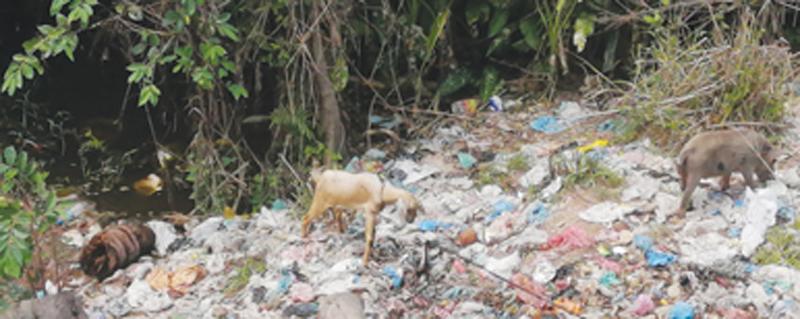
Environmentalists, eco-activists, civil society organisation representatives and tourism industry experts urging the authorities to put a stop to the ecological destruction of Muthurajawela, a marshland with a unique and diverse ecosystem proposed the conversion of sanctuary to a national wildlife park that will ensure the protection of the wetland while generating income to the state coffers through tourism.
The natural treasure is on the brink of a major ecological disaster due to the spate of destruction inflicted on the coastal wetland ecosystem by heartless elements bent only on money-making. “The conversion of the sanctuary to a national wildlife park is the only way out to save the sanctuary from further destruction,” prominent environmentalist and Head of the Archdiocesan Committee to Protect Muthurajawela, DinushaNanayakkara told the media during a visit to the sanctuary conducted by the Centre for Environmental Justice last week. Tourism industry experts sharing the same sentiments said making the sanctuary a national wildlife park will not only enable the government to generate revenue through tourism but also help protect the park from further destruction.
“A national park with clear boundary demarcations and laws to ensure its protection will be a major boost to ensure the preservation of the natural heritage,” a tourism industry expert said.
“Development should be done with a minimum impact on the environment but that is not the case at Muthurajawela. If it took less than 20 years to destroy around 700 acres one could imagine the timeframe to destroy the entire sanctuary,” Nanayakkara said.
Muthurajawela translated as the ‘Swamp of Royal Treasure’, is a 30- kilometre wetland north of Colombo with a history spanning over 700 years.
However, successive regimes had failed to preserve the rich natural heritage which is now in the hands of ruthless elements who are hell bent on exploiting it to the maximum for monetary gain.
Dumping of large quantities of waste from Colombo on a daily basis, illegal constructions, willful and maliciously setting fire and infrastructure development under the pretext of providing facilities to people permitted to settle down in the sanctuary have caused colossal damage to the ecosystem now on the edge of collapse.
The marshland listed as one of the 12 priority wetlands in the country is home to diverse species, fauna and flora.
However, it will not be long before the disappearance of the rich wetland due to the rapid loss of habitat, water, air and sound pollution caused by the invaders.
Withered coconut trees, carcasses, felled palms and charred grounds and the discoloured water of the old Dutch and Hamilton canals due to severe chemical contamination is what is left today of this once important sanctuary home to around 40 species of fish, 31 species of reptiles, 102 birds and 48 species of butterflies.
Religious leaders have condemned the destruction but to no avail. Archbishop Cardinal Malcolm Ranjith raised concerns of the issue at several media briefings urging those responsible to put an immediate halt to the destruction of the wetland.
What is also alarming is the encroachment of the land and fixing of ‘No Entrance’ boards at various locations of the sanctuary. Environmentalists have been calling for the protection of Muthurajawela for the sustenance of the livelihood of those in the fishing industry.
Fishing is the main source of income to a large number of people who eke out a living from the two canals, the lifeblood of the residents.letter from UCA News The mangroves which sustain marine life of the canals and the Negombo lagoon are under severe threat due to clearance of the marshland.
